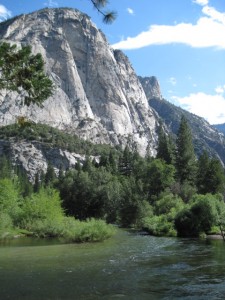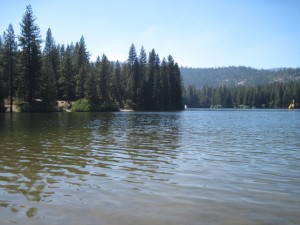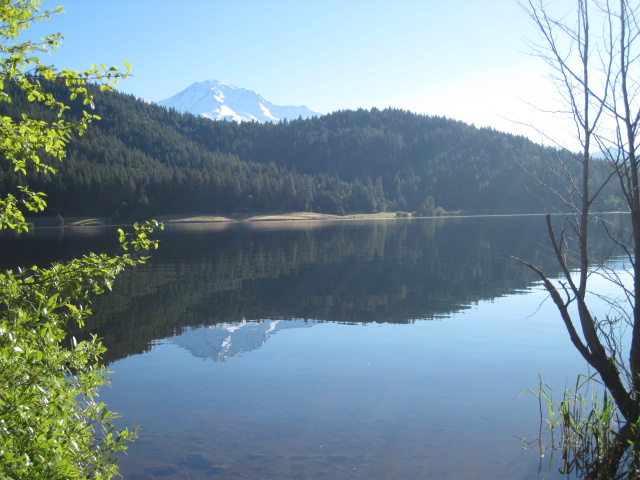The next three segments of the Sweetwater Project will relate the stories and revelations of a trip to Kings Canyon and encounters with its watery side.
Kind of a strange trip, a bit off kilter, and in the midst of confusion, it was as if the world was speaking to us through signs. Strong elements. A thunderstorm we watched approached on the other side of the river, our side without rain, and the other being pelted with raindrops. Lightning. A rainbow. Fire caused by lightning burning up the canyon behind our tent. Let burn by the park service. A clear green river. Towering granite formations cut by the world’s most accomplished sculptors- glaciers. Every night watching bats snatch moths from dusk. And on the last day, finally, a pleasant sunny day by a still body of water, the gentle touch I needed, a lake.
Lake
“a body of liquid on the surface of a world.” – the poet, Wikipedia.
I have to admit, of all natural bodies and forms of water, the lake was always the least interesting to me. I grew up by the Pacific Ocean, rocked by the loud crash and surge of that titanic body of water. Of course, as you know, I’m pretty partial to rivers too. Moving, roving streams of water that somehow find their way together, and gurgle and splash as they move across the land. Lakes, however, are quiet. Generally, there are not big enough waves to bodysurf on. They normally don’t lead anywhere. They have always seemed kinda static to me.
But taking a step back on this trip, next to gentle Hume Lake, I started to wonder: what the hell is a LAKE? Wikipedia gave me an answer I wouldn’t have expected- “a body of liquid on the surface of a world that is localized to the bottom of a basin.” Mostly it’s straight ahead, but what about the surface of ‘a world’ rather than the surface of ‘the world’ or ‘our world?’ But no my friends, the beauty of lakes is that they are not just confined to our small Earth, no. Lake can also be found on the world Titan, Saturn’s largest moon.
On Titan, the ‘bodies of liquid on the surface of the world’ contain liquid ethane and probably methane as well. Gaseous fluid lakes.
The next biggest surprise to me is that lakes are “temporary over geologic scales,” because they are destined to slowly fill with sediment or find their way out of the basin they are held in, and to the next low ground to flow on. Guess they’re not so static after all; only to my microscopic perspective.
Interesting tidbits: in England, most of the lakes in the Lake District are not named Something Lake, but are called Waters or Meres. In Scotland, almost everything we would call a lake, they call a loch. (aka Loch Ness)
Lakes generally occur in mountains or other low-lying basins or sinks. Basically, a basin that collects a gulp of water for a millennia or so till the plug gets pulled. A collection of water in a creased hand that can only be a birdbath for a bit. An umbrella upside down collecting the rain. That tiny little puddle on the sidewalk that’s a Lake Tahoe to the ants.
Needless to say, lakes has got a lot to relate. They’s coo. They’s hip. Lake.




Ah, the wonderful changes of pace lakes give to our rushed lives.
They truly are cool.
They truly are hip.
Make no mistake.
Lakes.